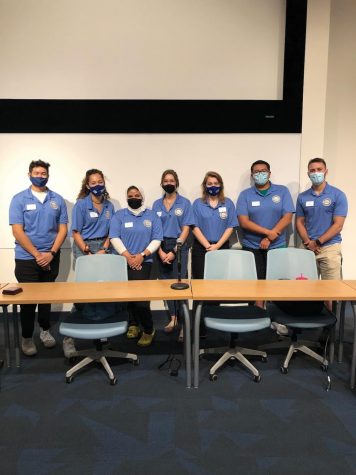How to Detect a Fraud Email

Monitor screen showing spam in the mailbox
A lot of emails get put into inboxes at the University of New Haven, to the point where some important ones can get glossed over as if they were spam. Occasionally, something will get read that shouldn’t have been, things like phishing emails will try to compromise your security.
While the university has a efficient spam filter, outside messages can be written in a way to sneak through.
Campus Tech Support representative, Greg Bartholomew said, “It’s a cat and mouse game between hackers and security companies that will probably always go on. What’s happened this year most often is one student receives a fraudulent email, called a ‘phishing’ email. It’s designed to look legitimate so you click on the link and provide your account and password. It’s typically written from a support offering to update your security, keep your mailbox open. It might even say it’ from ‘IT Support’ or similar. Once one student clicks on the link and provides their account and password, the hacker now has their credentials and logs into their email as that student. Once in, they can now email all students using their access to the address book. Then as more students click on it the issue propagates throughout the system. The university would like to take this opportunity to remind students you will never receive an email from us asking you to click a link to provide your account information.”
The system has been adjusted to catch more of the messages that would have previously slipped through, and the university is continuing to review their measures in attempts to increase security.
To personally reduce the amount of spam you receive in your inbox, it’s suggested that users be careful about what they give their email address to. Be sure to uncheck any boxes on sites that will use your email address for marketing purposes. Once your email is out there, it will be sold to marketing companies and at that point it’s hard to stop.
“If [the email]’s not from a newhaven.edu address it’s clearly not from us,” Bartholomew said. “The University is working to standardize on more limited email accounts that legitimate messages will be sent from. This should help users know just by the sender if it’s good. Next step is to hover over any link without clicking on them. This will show you where the link wants to take you. Again, if it’s not a newhaven.edu site it’s not legit. All students are welcome to forward an email to [email protected] if they are concerned about the validity of a message. And obviously if it’s asking you to provide your credentials to maintain or enhance your account or mailbox, it’s clearly fraudulent.”
Bartholomew and Student Tech Support would like to ask all students to visit Passwordreset.newhaven.edu to complete the self-registration form, it will allow users to change their passwords without the assistance of OIT if one feels their information has been compromised. Routinely changing your password should be a routine habit.
Contact Student Tech Support for any technology related problem at [email protected], call 203-932-8324 or visit the office located at the back of the Campus Bookstore.








